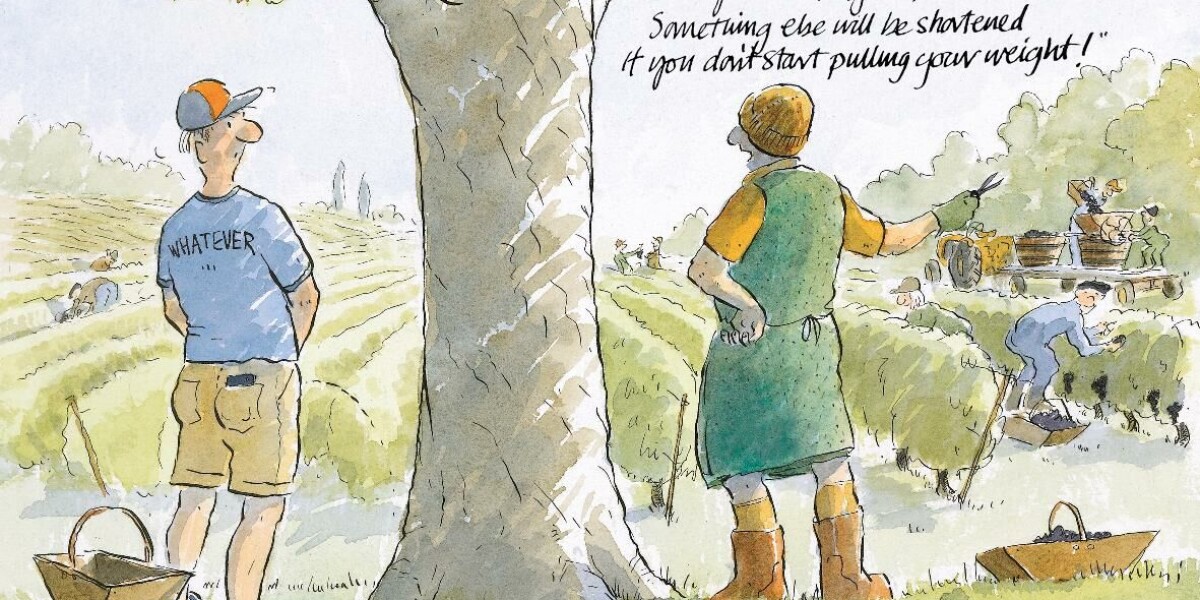
- Select a language for the TTS:
- UK English Female
- UK English Male
- US English Female
- US English Male
- Australian Female
- Australian Male
- Language selected: (auto detect) - EN
Play all audios:
When a Prime Minister goes on television to address the nation and spends the greater part of her speech saying that the complete breakdown of the British political system is not all her
fault, then you know that something, somewhere, has gone very wrong. And it has. There’s no getting away from it. Three of the most important institutions in Britain are now broken:
Parliament; the Constitution; and the party system. “You want this stage of the Brexit process to be over and done with,” said the PM, addressing the viewer directly, before delivering the
kicker: “It is now time for MPs to decide.” So there is it. This mess isn’t the government’s fault and it’s certainly not her fault either. It’s the MPs who’ve ruined it for everyone, with
their months of arcane procedural onanism. “You, the public, have had enough,” she said. It was yet more confirmation, then, that the relationship between Parliament and No 10 has collapsed
to zero. And if that link is bust, then the machinery of government is all but irrelevant. If the PM can’t get her business through the house, then she can’t do anything. Can’t move. Stuck.
Parliament has had a series of options presented to it and has rejected them all. What next? There’s no answer. The political system seems to have reached a blank wall with no indication of
where to go, or what to do. And that’s what brings us to the old debating point about a written Constitution. If only there were a written set of rules spelling out what should happen in any
given scenario, the argument goes, then we would never face an impasse of this sort. That idea has its attractions. But do we really want to hand over the most important political questions
to the lawyers? Do we want the outcome of elections decided in court? The US example shows what devilry can come of that. And even if there were some whizzy constitutional fix to be
deployed at a time like this, then it would be done with the assumption that normal business would immediately start up again and all would go back to normal. But “normal” would require
functional political parties—and we don’t have those. The two main parties are dead on their feet. The Conservative party is no more. It has split. And what’s more, in embracing Brexit, it
has ceased to be conservative. Gone is the old urge to protect hard-won gains and to preserve the institutions that have delivered it. The instinctive affinity for business has also fallen
away, as has the keen eye on markets and the health of the economy. Every one of these core conservative traits has vanished in a puff of Brexit, that wild, ill-thought-out leap in the dark,
taken without a moment’s thought for the economic damage it would cause. In short, the Conservative party is no longer conservative. It no longer represents the people who hold to that
political impulse. Its reason for existing has therefore disappeared. It’s the same for Labour. Originally it was a political engine to promote the interests of the workers of Britain’s
heavy industry. That heavy industry no longer exists. And so the party has descended from those worthy aims to become a strange grab-bag of hard left economic socialism and metropolitan,
progressive dinner party talking points about “social justice”. The preening self-righteousness that comes with that worldview is part of the reason the Labour party split. When it came to
the anti-Semitism problem, the high-ups simply couldn’t accept the fact there were racists among their number and so did nothing. (How different from Kinnock’s approach to the Militant
bacillus of the 1980s.) In short, today’s Labour party has moved so far away from its original reason for existence that it doesn’t represent anything. It’s meaningless. To recap, then—the
government has broken down, the relationship between No 10 and Parliament has broken down, the constitution has broken down, and Britain’s party system has broken down. A leader of any
substance would see this and make an attempt to get hold of the problem, to re-frame the national challenge in a way that at the very least acknowledged that such a challenge existed. But
not this current Prime Minister, whose televised speech last night was bitter, evasive and—I am sorry to write this—profoundly stupid. What possible sense could there be in insulting
Parliament mere days before asking it to vote for your deal? I fear that we have further to go, and further to fall, before a solution to our problems can be found. An election is the only
way forward, and that will require a long delay to Article 50. But May almost certainly doesn’t see it that way. Perhaps she is now too broken to see anything at all.









